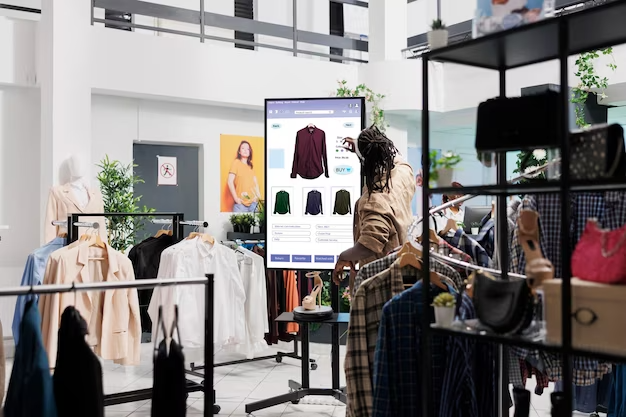
Introduction
In the fashion and luxury industry, digital marketing plays a vital role in driving brand awareness, engaging with customers, and increasing sales. To succeed in this highly competitive landscape, fashion and luxury brands need to adopt effective digital marketing strategies that align with their brand image and target audience. In this article, we present the top 10 digital marketing strategies tailored specifically for fashion and luxury brands to help them maximize their online presence and achieve their business goals.
- Develop a Strong Brand Identity
Establishing a strong brand identity is crucial for fashion and luxury brands. Define your brand’s unique selling proposition, core values, and target audience. Craft a compelling brand story that resonates with your target customers. Consistently communicate your brand identity across all digital marketing channels to build brand recognition and loyalty.
- Create High-Quality Visual Content
Visual content is paramount in the fashion and luxury industry. Invest in high-quality photography, videos, and visuals that showcase your products in an aspirational and captivating manner. Highlight the craftsmanship, attention to detail, and unique features that set your brand apart. Use visual storytelling to evoke emotions and engage your audience.
- Leverage Influencer Partnerships
Collaborate with influencers who align with your brand values and have a strong presence in the fashion and luxury space. Partner with influencers who can effectively showcase and endorse your products to their engaged audience. Influencer marketing can help increase brand visibility, credibility, and drive targeted traffic to your website.
- Engage with User-Generated Content
Encourage your customers to create and share content featuring your products through user-generated content (UGC) campaigns. Curate and showcase this content on your website and social media platforms. UGC adds authenticity, social proof, and fosters a sense of community around your brand.
- Embrace Social Media Platforms
Maintain a strong presence on social media platforms that resonate with your target audience, such as Instagram, Pinterest, and TikTok. Create visually appealing content, share behind-the-scenes glimpses, and engage with your audience through comments and direct messages. Leverage social media advertising options to reach a wider audience and promote your products.
- Implement Influencer Takeovers and Live Streams
Take advantage of influencer takeovers and live streams to amplify your brand presence and connect with your audience in real-time. Collaborate with influencers to host live events, Q&A sessions, or exclusive product launches. This strategy creates a sense of exclusivity, fosters engagement, and allows for direct interaction with your audience.
- Implement Personalization and Recommendation Engines
Implement personalization techniques on your website to deliver tailored experiences to your customers. Utilize recommendation engines to suggest complementary products based on their browsing and purchase history. Personalized recommendations enhance customer satisfaction, increase average order value, and drive repeat purchases.
- Optimize for Mobile and Enhance the Mobile Experience
Given the rise of mobile usage, ensure that your website and digital assets are optimized for mobile viewing. Implement a responsive design that provides a seamless user experience across devices. Enhance the mobile experience with features like one-click purchasing, mobile-friendly navigation, and fast loading times.
- Leverage Influencer-Generated Affiliate Marketing
Collaborate with influencers on affiliate marketing campaigns. Offer unique discount codes or affiliate links to influencers, which they can share with their audience. This strategy not only drives sales but also incentivizes influencers to promote your brand and products, as they earn a commission for each successful referral.
- Data Analytics and Customer Insights
Utilize data analytics tools to gather insights into customer behavior, preferences, and purchasing patterns. Analyze this data to refine your marketing strategies, optimize ad targeting, and enhance the customer experience. Leverage customer insights to tailor your marketing campaigns and offerings to better serve your audience.

Conclusion
Digital marketing is essential for fashion and luxury brands to establish a strong online presence, engage with their audience, and drive sales. By implementing these top 10 digital marketing strategies, fashion and luxury brands can maximize their reach, enhance brand perception, and build long-term customer relationships. Develop a strong brand identity, create high-quality visual content, and leverage influencer partnerships. Encourage user-generated content, embrace social media platforms, and implement personalization techniques. Optimize for mobile, leverage influencer-generated affiliate marketing, and utilize data analytics for valuable customer insights. With a comprehensive digital marketing approach, fashion and luxury brands can effectively navigate the digital landscape and thrive in the industry.
If you are looking one click here, contact us here
Follow us on Instagram
